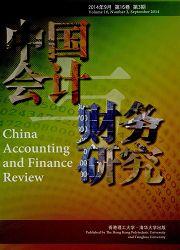Numerological superstition and earnings management: evidence from China
引用次数: 1
Abstract
PurposeAn emerging line of research examining the role of numerological superstition in the capital market shows that it has significant impact on investor behavior (Bhattacharya, Kuo, Lin, & Zhao, 2018; Hirshleifer, Jian, & Zhang 2018). However, to the authors’ best knowledge, there is a dearth of evidence on whether numerological superstition affects corporate behavior. This study fills this void by examining the association between investors’ numerological superstition and earnings management using Chinese data.Design/methodology/approachChinese culture views 6 and 8 as lucky numbers. Using Chinese publicly traded firms, the authors examine the relation between investors’ numerological superstition and corporate financial reporting behavior.FindingsThe results suggest that firms reporting lucky earnings-per-share (EPS) numbers ending with 6 or 8 are more likely to engage in earnings management. These firms also raise more capital through seasoned equity offerings in the following year; however, they do not have more capital investments. Instead, their controlling shareholders siphon a significant amount of capital through related party transactions. Overall, the findings suggest that managers collude with controlling shareholders to manage earnings by exploiting the superstitious beliefs of minority shareholders.Originality/valueTo the authors’ best knowledge, there is a dearth of evidence on whether numerological superstition affects corporate behavior. This study fills this void by examining the association between investors’ numerological superstition and earnings management using Chinese data.数字迷信与盈余管理:来自中国的证据
目的研究命理迷信在资本市场中的作用的新兴研究表明,它对投资者行为有显著影响(Bhattacharya,Kuo,Lin,&neneneba赵,2018;Hirshleifer,Jian,&Zhang,2018)。然而,据作者所知,关于数字迷信是否会影响企业行为,目前还缺乏证据。本研究通过使用中国数据研究投资者的数字迷信与盈余管理之间的联系,填补了这一空白。设计/方法论/方法中国文化认为6和8是幸运数字。以中国上市公司为研究对象,研究了投资者的数字迷信与公司财务报告行为之间的关系。研究结果表明,报告每股收益为6或8的公司更有可能参与盈余管理。这些公司还在接下来的一年通过经验丰富的股票发行筹集更多资本;然而,他们没有更多的资本投资。相反,他们的控股股东通过关联交易吸走了大量资本。总体而言,研究结果表明,管理者与控股股东勾结,利用少数股东的迷信信仰进行盈余管理。原创性/价值据作者所知,关于数字迷信是否会影响企业行为,目前缺乏证据。本研究通过使用中国数据研究投资者的数字迷信与盈余管理之间的联系,填补了这一空白。
本文章由计算机程序翻译,如有差异,请以英文原文为准。
求助全文
约1分钟内获得全文
求助全文

 求助内容:
求助内容: 应助结果提醒方式:
应助结果提醒方式:


